New Delhi: Kashmiri Pandits on Tuesday protested at Jantar Mantar in the capital to mark the 27th anniversary of their Holocaust/Exodus Day, hoping to go back to their homes with dignity.
The displaced Kashmiri Pandits has resolved not to hold weddings or any other family celebrations on two days of the calendar as part of their efforts to "keep alive" the struggle for "homeland".
Every September 14 and January 19 will be marked as "no celebration days
September 14 has already been adopted by the community as 'Martyrs Day', the day on which in 1989 separatists started the selective killings of Pandits in the Valley.
As the Pandit community commemorates this day as the #KPExodusDay on Social Media, tributes have poured in from across India with veteran actor Anupam Kher is spearheading the campaign on Twitter.
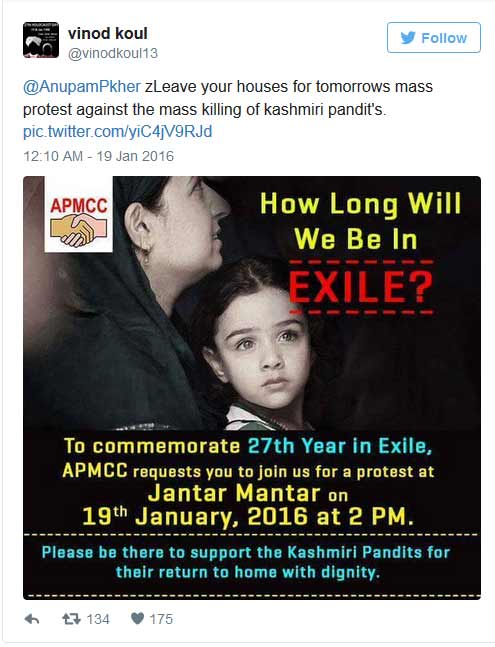
But former Chief Minister of Jammu and Kashmir and Union Minister Farooq Abdullah has stirred a major controversy by saying that the "onus is on the Pandits" to make a comeback. "They (the Pandits) have to realize one thing- nobody is going to come with a begging bowl and say 'come and stay with us' , they have to make the move, " Abdullah told a English News Channel.
He went on to argue that he had made several attempts over the decades to try and get Pandits to return to the Valley, but many of them had sold their homes and were not willing to come and live in Kashmir any longer.
Jammu and Kashmir is the only Indian state with Muslim majority population and Hindus in minority.
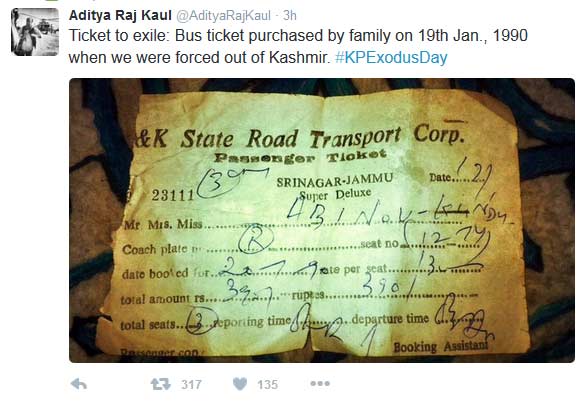
Year 1989 was one of the most difficult years for Indian establishment as armed resistance to Indian rule broke out in the Kashmir Valley.
While some groups were calling for independence, others wanted union with Pakistan.
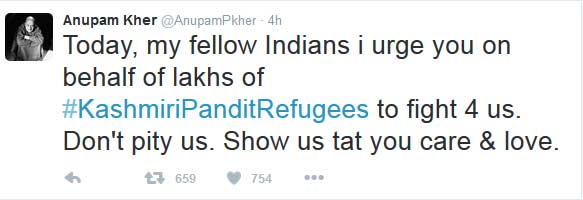
Amid reigning chaos, the emphasis of the movement soon shifted from nationalism to Islam.
Caught in the strife were the minority community of Kashmiri Hindus - the Kashmiri Pandits, who inhabited the territory for centuries.
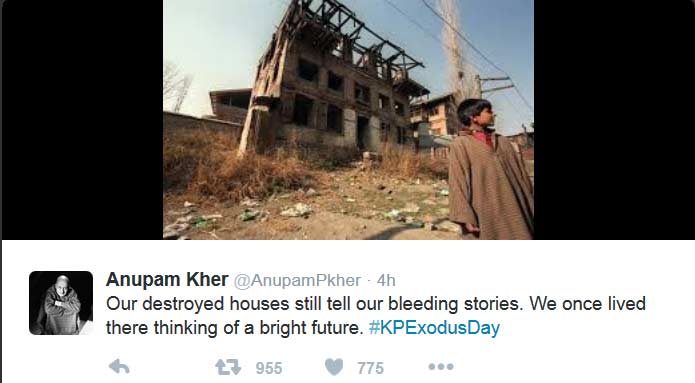
The Hindu Pandits of Kashmir became the first target of the insurgency. There were viewed as living symbols, representing India in Kashmir.
They fled the valley leaving behind their homes and homeland to save themselves from persecution at the behest of Islamic extremists/terrorists.
Half a million Pandits were displaced, marking the largest-ever exodus of people since India's partition in 1947.
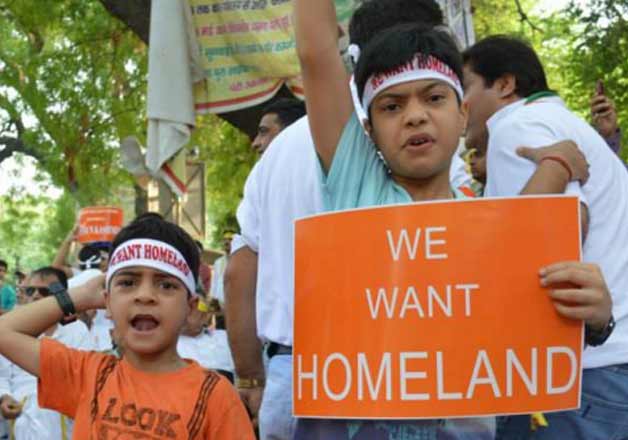
According to a BBC report, Many of the 250,000 refugee Kashmiri Pandits have been living in pitiable conditions in Jammu, a Hindu-majority region south of the Kashmir Valley.
According to government Data “219 Pandits were killed in Kashmir from 1989 to 2004." but unofficial death toll is belived to be more. Most of the Hindu shrines in the valley was destroyed in this period.
Every year since that day, Kashmiri Pandits commemorate January 19 as Kashmiri Pandit Holocaust/Exodus Day, hoping to go back to their homes one day.
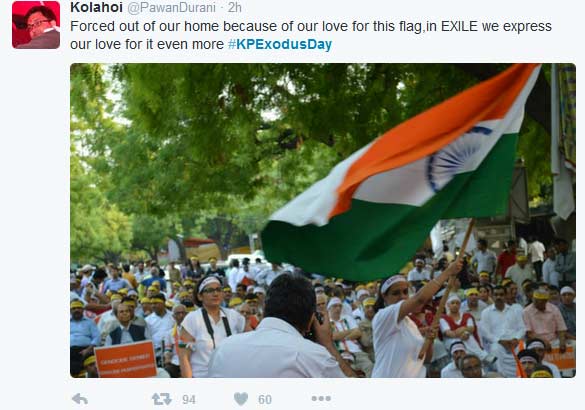
As of October 2015, only 1 Kashmiri Pandit family returned to the Kashmir valley since 1990 according to the Jammu & Kashmir government despite the financial assistance being given for rehabilitation.
The exiled community had hoped to return after the situation improved. They have not done so because the situation in the Valley remains unstable and they fear a risk to their lives. BJP government at centre is one of the staunch supporters of rights of Kashmiri Pandits but it is yet to be seen how they succeed in rehabilitating them at their homeland.
